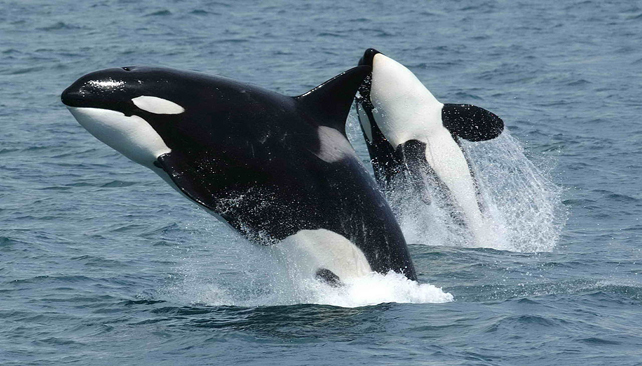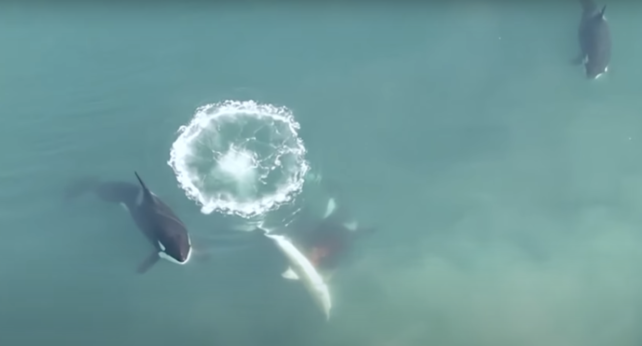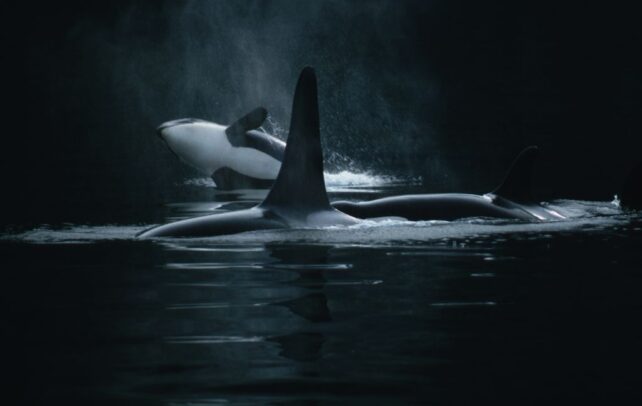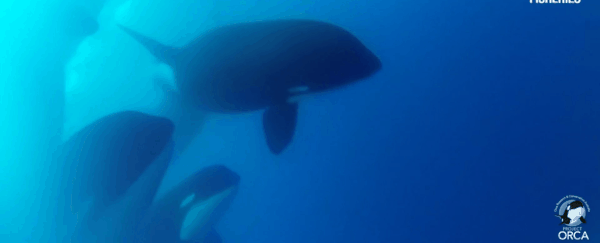In and around the Strait of Gibraltar that divides Spain from Morocco, orcas are behaving in odd and aggressive ways.
Since July 2020, humans have recorded hundreds of instances where the giant marine mammals (Orcinus orca) have duked it out with boats, seeming to intentionally break parts off before departing. Most boats are sailboats, and much of the damage appears to be to the rudder.
In a bizarre escalation, a pod of orcas followed a yacht back to the harbor after breaking off its rudder.
That might be stranger than you know. In centuries of maritime literature, there are no recorded fatal attacks on humans by orcas in the wild. In fact, wild orca attacks on humans were shockingly rare, given the animals' reputation.

Technically, this might still be the case – the boats, not the sailors, could be the source of the orcas' amusement or ire – but it's definitely a cause for concern.
And it's not just because orcas are up to 10 tons of streamlined blubber, muscle, and teeth that can quickly outstrip a racing yacht for speed. Because of their decisive cunning, orcas are among the most effective predators in the oceans.
Asked to name an intelligent animal, many people will immediately think of chimpanzees or bottlenose dolphins. But orcas may have them both beat.
They have regional dialects
Animals communicate in different ways, but in the cold ocean depths, sound is one of the most critical tools in the cetacean communication toolkit. Sound travels much faster in water than in air and can do so across much greater distances. Orcas are spread across the globe, and regional groups have developed their own dialects.
Scientists studying the clicks and whistles these groups use to communicate found regional differences between them. These could be attributed to inheritance, as a mother passes her way of "speaking" on to her offspring, but research has also found that sharing a dialect is not a reliable predictor of a genetic link.
Instead, it seems to be partially a product of local culture.
They develop cultural behaviors
Orcas can learn from each other, and pretty adroitly, too. In the summer of 1987, a brief "fad" occurred after a female orca in the Puget Sound area started carrying around a dead salmon on her head. A few weeks later, orcas in two other nearby pods were doing the same thing; they continued wearing dead salmon hats for five or six weeks, then stopped, with only a few brief salmon hats appearing the following summer.
Orcas' social learning has more serious roles in their lives, too. Aside from the regional dialects, there are also the best hunting tips and tricks, which vary from region to region, as different orcas will hunt other food, from fish to seals to whales. Orcas off the coast of South Africa hunt sharks, eviscerating them with near-surgical precision to get their tasty, nutritious, oil-rich livers.

Some scientists even think that orca culture is an important driver of their evolution, alongside their genetics. All orcas are the same species, but there are some regional differences in how they are shaped and patterned. Some believe cultural differences in the form of learned behaviors are creating enough reproductive isolation to drive speciation.
They value their nannas
There's no such thing as the lone wolf or the maverick in orca societies. They hunt socially, using tactics that require multiple members to play different roles. Their social structures are complex, but usually, pods are matriarchal, headed up by females.
This pack lifestyle seems to increase their survivability, not least because of that structure. Orcas are one of the few species in the world that experience menopause; after they can no longer reproduce, the orca grandmothers can devote their energy to supporting the larger pod. They often know the best hunting grounds and can guide their families through tough times.
Research shows that following the death of a grandmother, calf mortality in an orca pod also rises. The grandmother hypothesis could explain these benefits, which proposes that menopause creates a generation of wiser family members that can better contribute to the overall wellbeing of their kin and clan.
They can 'speak' in other 'languages'
A few years ago, an orca named Wikie made headlines by 'speaking' human words. A scientist taught her to make vocalizations that sounded like human words, such as "hello" and "bye-bye". There was no indication that Wikie knew what the words meant, but the fact that she could make the sounds was pretty amazing to hear.

In truth, orcas might be engaging in more mimicry than we know. A 2011 study found that orcas could mimic the vocalizations of other orcas with a different dialect, for example. They've also been observed copying sounds made by other species. They've been recorded making sounds usually associated with bottlenose dolphins; not so strange, perhaps, since orcas are also a type of dolphin.
They've also been recorded mimicking sea lions, which is interesting since they usually prey for orcas. We can't attach a motive to the behavior since it seems pretty rare, but imagine if they learn to bamboozle their prey. It doesn't seem entirely outside the realm of possibility, does it?
So whatever is going on with the orcas in the Strait of Gibraltar, there's no doubt it will be interesting. Are they seeking revenge on boats after some physical insult? Are the animals merely curious? If so, why now? Why boats?
A paper last year speculated that the movement (or fad) seems to have been led by a single female orca named White Gladis. However, what motivates her to rock the boats is unclear and likely to remain so until we have more information.
